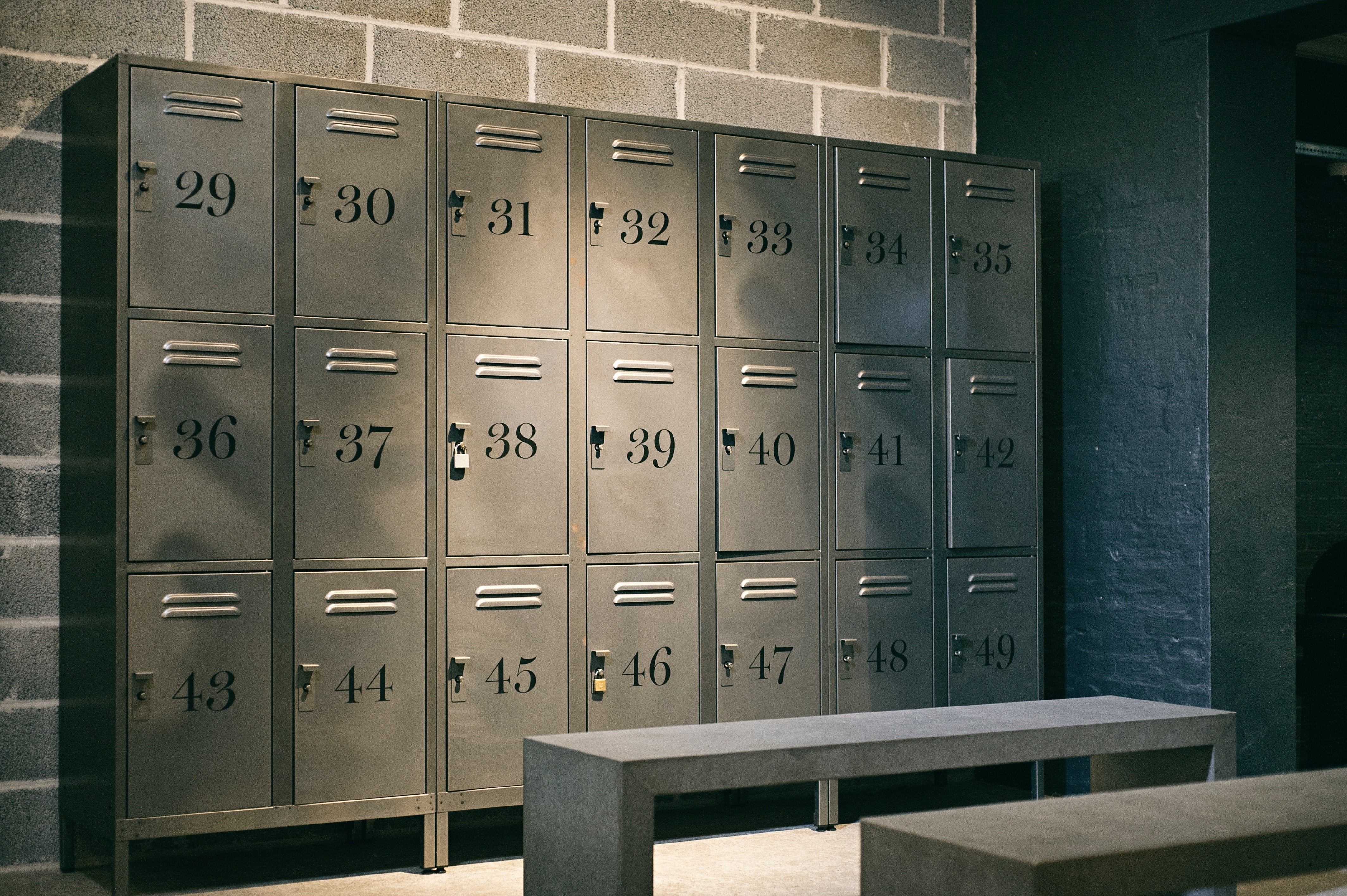 The middle school locker room. The other 99% of the day, I could generally pretend not to have a body, but in the fluorescent seventh-grade gym, there we all just…were. I remember my routine: find a corner, try to shrink, change as fast as possible, wear an indifferent face so no one will think you’re a baby. Make an exit. Breathe again.
The middle school locker room. The other 99% of the day, I could generally pretend not to have a body, but in the fluorescent seventh-grade gym, there we all just…were. I remember my routine: find a corner, try to shrink, change as fast as possible, wear an indifferent face so no one will think you’re a baby. Make an exit. Breathe again.
Middle school bodies will never not be awkward and maybe a little painful. But that constricting feeling—the fear others will find out I have a body, and a complicated relationship to it—remains with me well into my 20’s.
How many of us are still trapped in the middle school locker room when it comes to our grown-up bodies? Deeply embarrassed, but trying to seem brave; feeling immensely lonely in a room full of people who actually share our exact feelings and issues.
This tragedy repeats itself over and over because shame breeds shame. It festers in darkness and tightens its grip on its victims day by day. That feeling of unworthiness will suffocate you, feed on your joy, it will isolate you so that you have no chance of hearing the truth.
The only way to break its neck is to gasp out your secret and then wait for the sky to fall, and if it does, well, that’s better than dying silent and hiding.
I thought I knew about shame, but then I wrote a devotional last year about making friends with my body and God. It was surprising, the places I’d feel shame trying to tiptoe back in. Writing about food or stretching would suddenly feel like I was recounting all the details of some terrible, intimate secret. Or a voice would whisper, you’re too small, you don’t have this all figured out, you’re too young to write about this.
On my better days, I realized that voice was a signal I was in exactly the truth-telling place I needed to be.
See, our culture has done alright in the last few years at acknowledging it’s hard for women to love our bodies. But we’ve rushed on trying to muster Girl Power, thinking we could skip over the work of healing. We’ve told each other to be happy, be confident, be yourself—and in the process we’ve failed to make room for one another to admit we’re grieved, insecure, fractured.
So the shame buries itself deeper and goes on gutting us.
Writing my stories and confessions about my body taught me that even though bodies are intensely personal, there’s no use pretending they’re really private. Our bodies are the only site we have for meeting other people. Our weight, our health, our sexuality, our race and gender and ability, our comfort and discomfort with our own flesh affect every person we meet.
When we try to keep our body struggles and victories to ourselves, we’re denying the reality that we need others to share the journey with. I am making friends with my body and God, but I also have to reckon with my parents and grandparents, my pastors, my middle-school bullies, my best friends, every boy I’ve ever kissed and every man who’s ever stolen my smile.
I can’t do all that alone.
I needed late-night stories; safe warm hugs; conversations with my best friend about body hair. I needed to confess my sexual “indiscretions” to friends and hear the same confessions back from every. Single. One of them. I needed to eat and drink and sing and swim and cobra-pose with other people. I needed to hear my own brave, shaking voice, telling the truth, unlock sighs of relief from others who didn’t even know they were holding their breath.
Alone, you can start to rattle your cage. But get a few people together and you can pull down the whole damn prison.
Bread, Sex, and Other Devotions helped me find my little brave voice. Now I’ve created a getting-started group guide to help you find yours by discussing it with a circle of friends. Whether you hope sharing your stories and struggles will help you find deep healing, or you just need some accountability to actually finish the thing; whether you circle up your closest friends, a group you’d like to be closer to, or a few middle school girls—it’s time to end the silence.
Once your group gets started, send me an email, too—I’d love to Skype in on a session (or stop by if you’re in Charleston).
All you need is your people, the free downloads, and yummy snacks (always yummy snacks). So don’t wait. There’s not going to be a “good time” and you’re never gonna get un-scared. And that’s what’s beautiful about it: you get to be brave. You get to decide that today is the day, this year is the year when shame doesn’t win.